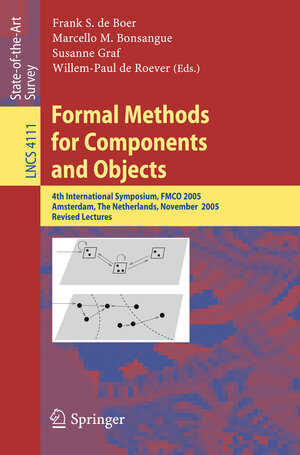
Formal Methods for Components and Objects
4th International Symposium, FMCO 2005, Amsterdam, The Netherlands, November 1-4, 2005, Revised Lectures
herausgegeben von Frank S. de Boer, Marcello M. Bonsangue, Susanne Graf und Willem-Paul de RoeverFormal methods have been applied successfully to the verification of medium-sized programs in protocol and hardware design. However, their application to the development of large systems requires more emphasis on specification, modelling and validation techniques supporting the concepts of reusability and modifiability, and their implementation in new extensions of existing programming languages.
This book presents 19 revised invited keynote lectures and revised tutorial lectures given by top-researchers at the 4th International Symposium on Formal Methods for Components and Objects, FMCO 2005, held in Amsterdam, Netherlands, in November 2005. The book provides a unique combination of ideas on software engineering and formal methods that reflect the current interest in the application or development of formal methods for large scale software systems such as component-based systems and object systems. The papers are organized in topical sections on component and service oriented computing, system design, tools, algebraic methods, model checking, assertional methods, quantitative analysis.



